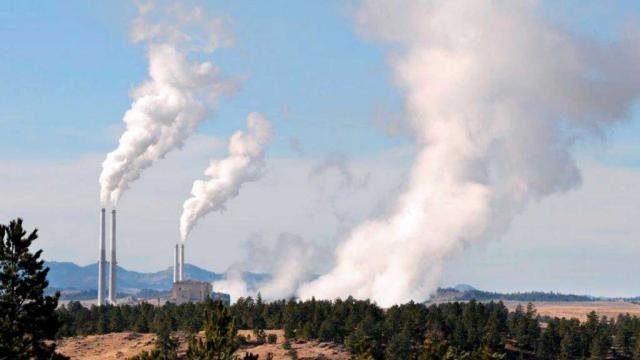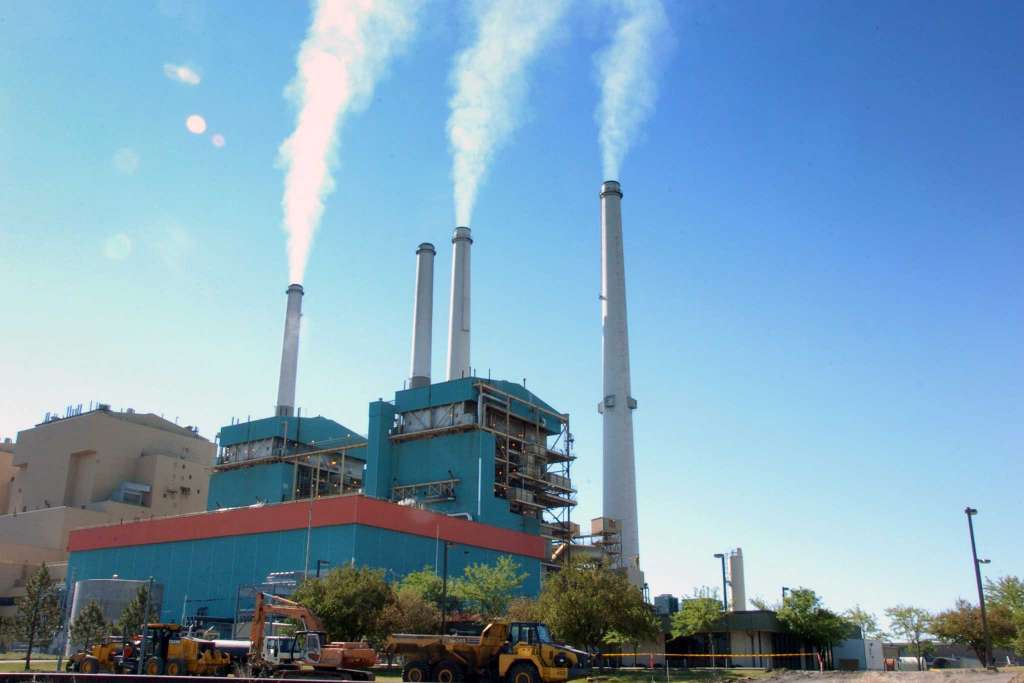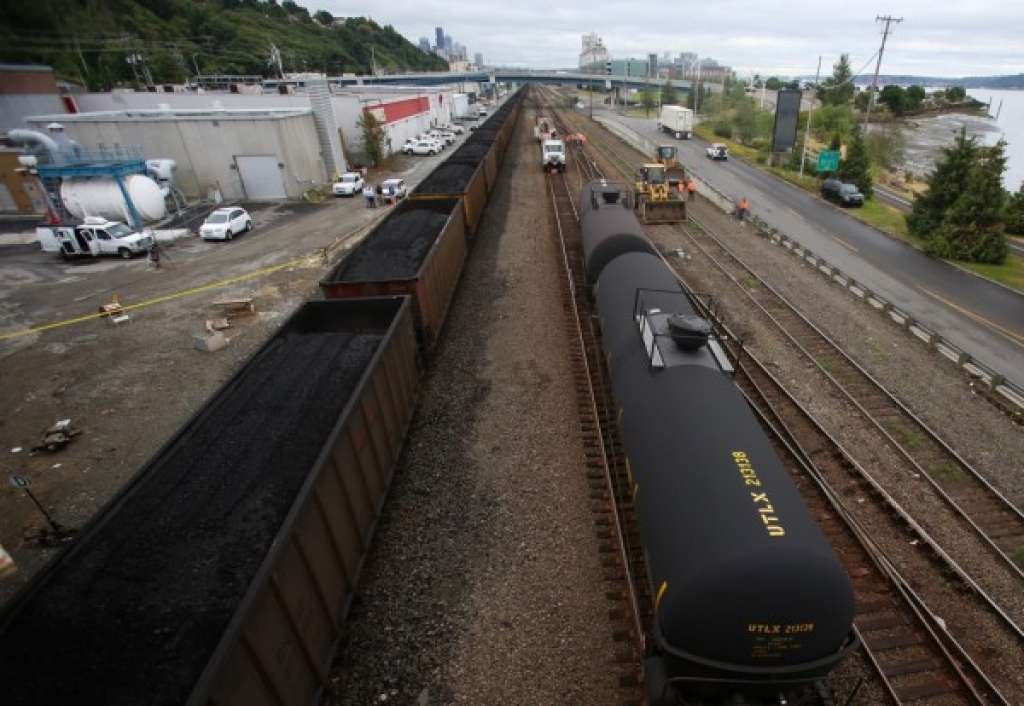
The state of Washington will not allow its aquatic lands along the Columbia River to be used in a major coal export terminal, a decision announced last week by outgoing State Lands Commissioner Peter Goldmark.
The decision by Goldmark deals a serious blow to the Millennium Bulk Terminals project, which has already experienced the bankruptcy filing of its parent firm Arch Coal. It is the latest of several blows to the fossil fuel industry in the Northwest.
The lands commissioner turned down a request by Northwest Alloys, a subsidiary of Alcoa, to sublease state-owned aquatic lands to Millennium.
The Department of Natural Resources said Millennium has "a chronic pattern of failure" to provide "essential and accurate information" – particularly about viability of its export markets and its own financial integrity in the wake of Arch Coal's bankruptcy.
Goldmark is going out with a bang.
He also expanded Puget Sound's Cherry Point Aquatic Reserve, north of Bellingham, to include 45 acres previously considered for the Gateway Pacific Coal Export Terminal. The Cherry Point project was rejected by the Army Corps of Engineers last spring.
"These decisions are in the best long-term interest of Puget Sound, the Columbia River and the people of Washington," Goldmark said in a statement. The Okanogan County rancher is completing eight years as boss of the Department of Natural Resources.
Paradoxically, Goldmark has consistently taken fire from the everybody-is-a-sellout-but-us wing of the environmental movement, and particularly wealthy green Peter Goldman of the Washington Forest Law Center.
Conservation groups and Indian tribes celebrated as if there is no tomorrow º as there might not be in the upcoming Trump Administration.
"We ring in the new year with a major victory for the public, and showing that once again the Northwest holds the line on dirty fossil fuels," said Jasmine Zimmer-Stucky of the Columbia Riverkeepers, speaking for the Power Past Coal coalition.
Brian Cladoosby, chairman of the Swinomish Indian Tribal Community, thanked Goldmark and added: "Our rights, cultures and way of life revolve around the land and water and the resources that has sustained us since time immemorial.
"We are excited to work with Lands Commissioner-elect Hilary Franz and will support her strong partnership that the Department of Natural Resources has with Washington Treaty Tribes."
(Cladoosby is president of the National Congress of American Indians.)
Millennium cited a 2013 letter from the state to argue that it is already operator of the site.
"The decision today has no effect on the project moving forward and we look forward to permitting and operating a world class port in Longview that will provide family wage jobs and tax revenues right where they are needed in Cowlitz County," Millennium CEO Bill Chapman claimed to The Columbian.
Millennium has proposed to receive up to 44 million tons of coal each year from the Powder River Basin of Montana and Wyoming. The trains would come down the Columbia River through the Columbia Gorge National Scenic Area.
The coal export terminal would be located at an old, World War II-era aluminum smelter, operated by Reynolds Metals and later Alcoa. (A photograph of President Franklin D. Roosevelt being driven through the smelter used to hang in the plant office.)
The decision by Goldmark makes a point to the incoming regime in Washington, D.C. States have rights and a big say in climate and resource policy.
President-elect Trump has vowed to revive the coal industry: It is unclear how he will do so, given its loss of market share to natural gas. But the new administration can reverse a moratorium on granting new coal leases on federal lands in the West.
But the state of Washington and Puget Sound Energy have already worked out an agreement to phase out the old, dirty Colstrip 1 and 2 coal plants in Montana. The adjoining Colstrip 3 and 4 units are teetering on the edge of economic viability.
The state has an agreement with Canadian-based TransAlta, approved by the legislature, to phase out the Centralia coal plant, Washington's largest greenhouse gas emitter. Centralia is Washington's one operating coal plant.
Millennium had asked for a sublease from the Department of Natural Resources, which is steward for 2.6 million acres of state-owned aquatic lands. The aquatic lands lie beneath Puget Sound, the Washington coast and navigable rivers. The aquatic lands on the Columbia River are adjacent to the proposed coal terminal.
North of Bellingham, any projects proposed for the former Gateway Pacific site must be compatible with the DNR's Cherry Point Aquatic Reserve management plan, which precludes activities likely to have detrimental impacts on the aquatic reserve.
Opposition from the Lummi Nation, and claims the coal terminal would damage the tribe's treaty-guaranteed fishery, forced the Army Corps of Engineers to deny permits for Gateway Pacific.
Tim Ballew, who chairs the Lummi Indian Business Council, said of an area his tribe call Xwe'chi'eXen, "This is an historic day for the Lummi, our treaty rights and our future generations."
"Across the country, from Xwe'chi'eXen to Standing Rock, Native people are celebrating the protection of our ancestral lands."
The Lummis, Swinomish and other tribes face one more looming battle with the carbon economy. The Canadian government has approved a major pipeline project, which would send 898,000 barrels of Alberta tar sands oil into Vancouver-area waters each day.
The TransMountain pipeline expansion would send 34 laden tankers (up from the current five) through international waters of Haro Strait and the Strait of Juan de Fuca each month. Aboriginal First Nations groups in British Columbia, along with mayors from Vancouver, Victoria and Burnaby, are vowing to resist.
Originally published on Seattle PI
3 WAYS TO SHOW YOUR SUPPORT
- Log in to post comments













